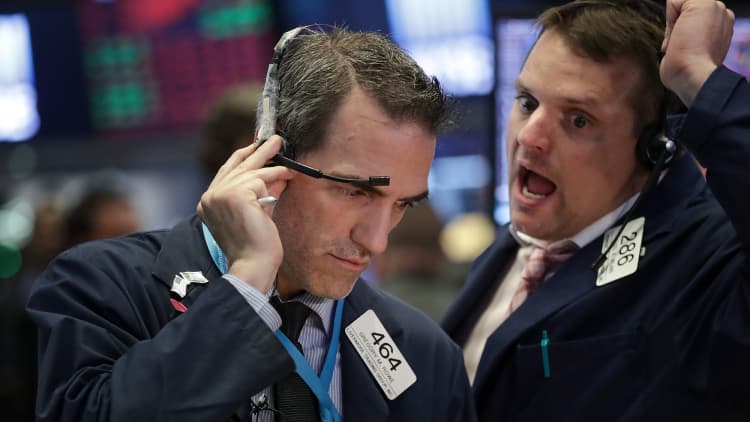
Global stock markets fell sharply on Tuesday after President Donald Trump threatened to impose an additional trade tariff on $200 billion worth of Chinese goods.
Following that bombshell, Chinese stock markets closed sharply lower. The volatile Shenzhen fell almost 6 percent, while the Shanghai Composite neared a two-year low.
European stocks followed suit and by mid-afternoon in London, the pan-European Stoxx 600 was 0.7 percent lower with all but two sectors trading lower.
U.S. stocks were next up and shortly after the open, the Dow Jones industrial average was lower by around 300 points, equating to about 1.2 percent.
The NASDAQ and S&P 500 indices also witnessed sharp sell-offs.
The trigger for selling was a Monday night request by Trump to the United States Trade Representative to identify $200 billion worth of Chinese goods for additional tariffs, at a rate of 10 percent.
Trump said Monday night that If China "refuses to change its practices" then the additional levies would be imposed on Beijing.
The new tariffs followed an exchange of trade levies announced by both countries last week that is set to affect about $50 billion worth of goods flowing in each direction. Beijing has already reacted to Trump's statement, pledging to retaliate.
"The United States has initiated a trade war that violates market laws and is not in accordance with current global development trends," China's Commerce Ministry said.
Speaking to CNBC's "Squawk Box Europe" on Tuesday, Nandini Ranakrishnan, global market strategist for J.P. Morgan, said the political realities of upcoming midterm elections could force the U.S. government to back away from a full-blown trade war.
"If prices of imported goods are rising for the U.S. consumer at an unmanageable rate, then there is a large part of the U.S. voting population that maybe will feel their money not going as far," she said.
Ranakrishnan added that in addition to harming the spending power of populace, a trade war with China would risk losing the "big, booming friendly to business theme" it has cultivated.
The J.P. Morgan analyst said volatility in equity markets because of "government noise" would continue to be a big theme for 2018.

That view is echoed by equity analysts at ABP Invest. Founder Thanos Papasavvas said in a note Tuesday that trade disputes would have a more significant impact in volatility than what markets were pricing in.
"Markets will not wait for the economic impact; instead, reacting on the back of headlines and the inevitable Twitter messages. This will cause volatility to increase, export-heavy stock markets like the German DAX to fall, and thus impact consumer and business sentiment accordingly," he said.
ABP has claimed that, in 2017, U.S. trade with China was worth $636 billion and almost $720 billion with the European Union.
Papasavvas identified the environment as one in which active managers should look to take advantages of "dislocations in price and risk."


